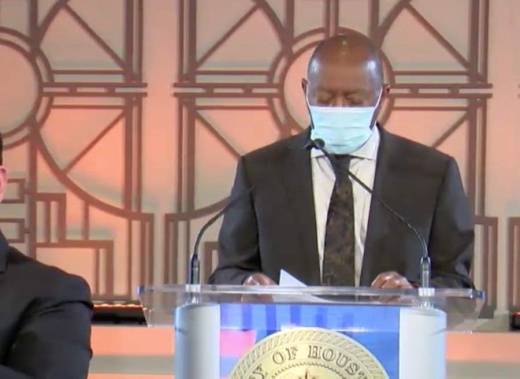The proposed $5.1 billion budget calls for 3,000 city employee furloughs and for pulling $98 million from the fund balance, which would put the city below its mandatory 7.5% minimum held in reserves.
The city is only permitted to dip below its 7.5% reserve fund in the event of “economic instability beyond the city’s control," Turner said.
The draw-down includes tapping the remainder of the $20 million of the city's emergency budget stabilization fund. The city had already budgeted $5 million from the fund because of the outbreak.
The cumulative impact of the pandemic-related economic downturn on Houston’s sales tax revenue is expected to total $107 million over FY 2020-21, according to projections. Before the coronavirus outbreak, city officials previously projected a 2.1% increase in sales tax revenue. The sales tax losses have added to an already anticipated budget deficit, which now totals $169 million.
The city relies heavily on sales tax because of a mandated cap on property tax revenue growth, Turner said.
If the budget is approved as proposed, the city will have 7.15% left in its fund balance and no emergency funding left for the year.
“There is no rainy day fund," Turner said. “As we approach the hurricane season, the economic stabilization fund is down to zero, which places us in a precarious state.”
In addition to the employee furloughs—which are proposed to begin July 1, to require 10 unpaid days per employee and to save $7 million—the city plans to also defer five police cadet classes, saving another $14.5 million. However, the furloughs do not apply to the police, fire or solid waste departments.
“I regret that we’re having to do this, but we are obligated to balance our budget,” Turner said. “We’re not laying off any employees, and we’ve tried to avoid doing that, but at the same time, most of our budget is in personnel."
Other savings come from deferring a $10 million payment to the Houston Zoo, which is set to be recovered by the city’s $404 million allocation of federal Coronavirus Aid, Relief and Economic Recovery Act funding, land sales and a proposed citywide trash bin fee that could generate $1 million.
Turner said he is also eyeing ways the city can receive approval from federal officials to use more CARES Act funding on payrolls for city employees who have worked in response to the outbreak.
The budget is subject to City Council review and to a vote in June. FY 2020-21 begins July 1.





